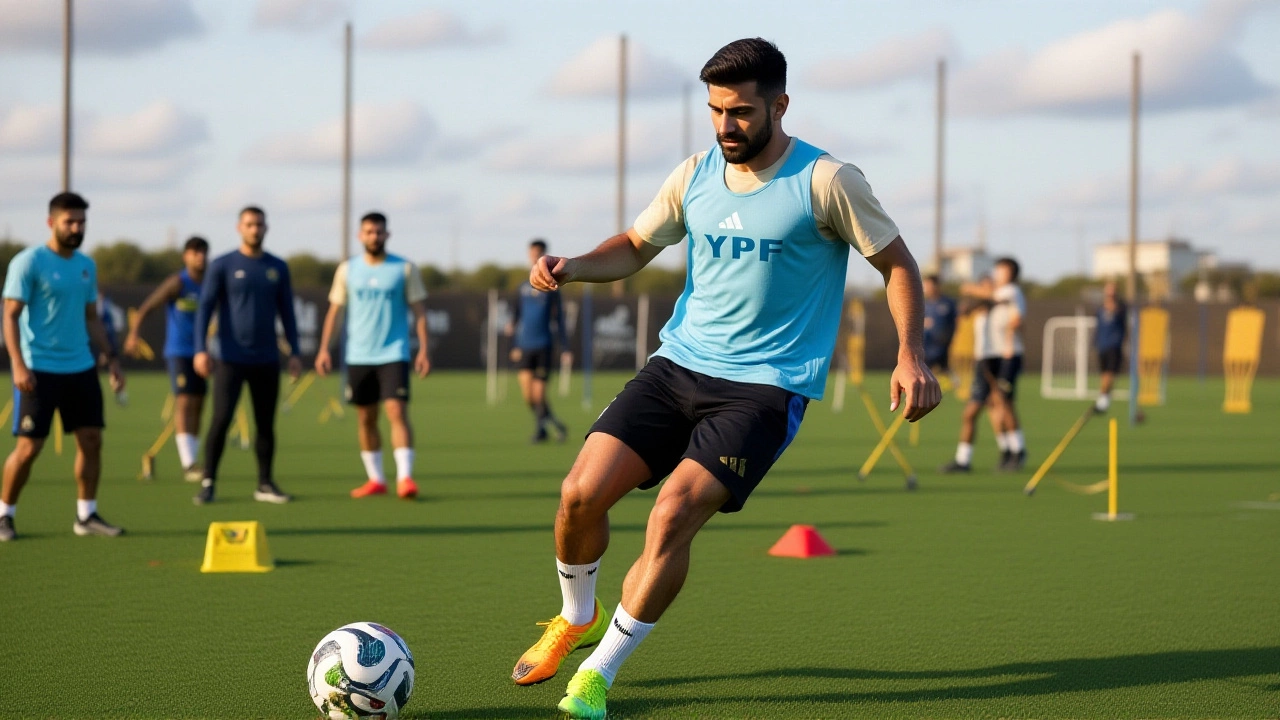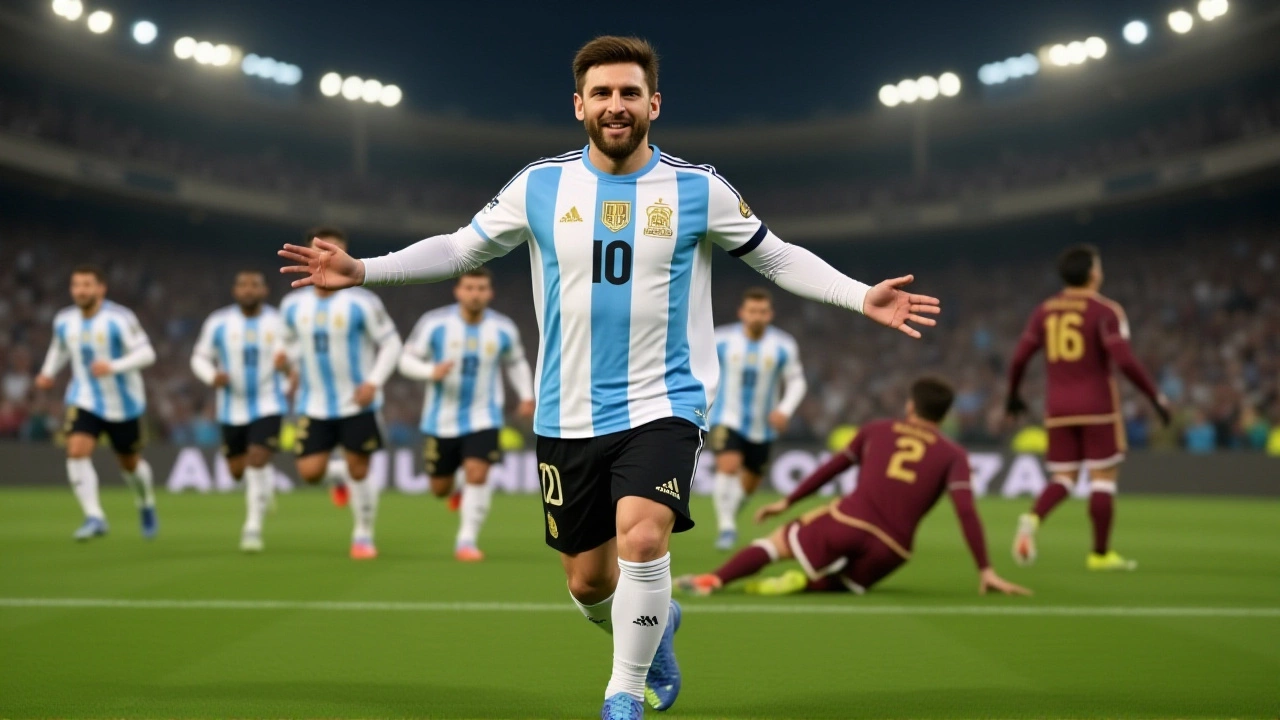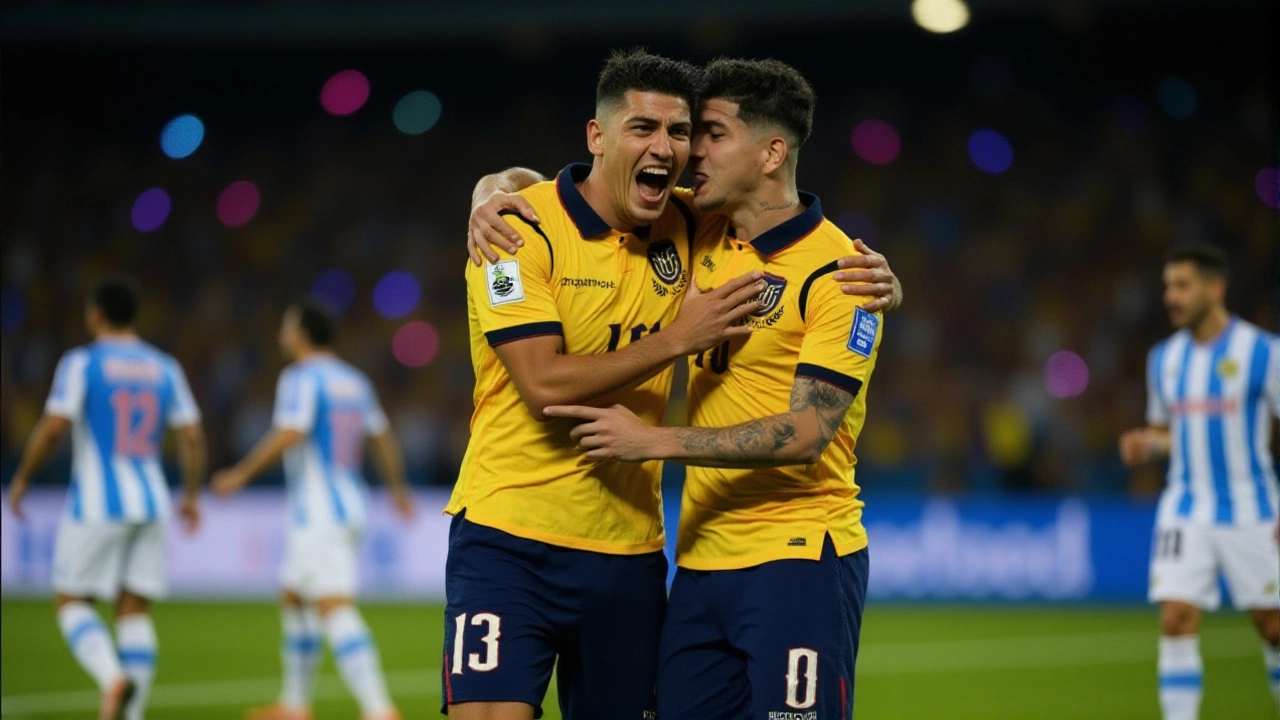When Enner Valencia, forward of Ecuador national team slotted the winning spot‑kick, an entire continent sat up. The lone goal came at the Estadio Banco Pichincha in Guayaquil on September 10, 2025, sealing a 1‑0 shock over the Argentina national team in the closing match of the 2026 FIFA World Cup South American Qualifiers. It wasn’t just a single point – it was the moment Argentina dropped from the top of the FIFA rankings, and it gave Ecuador its most memorable victory in a decade.
Background: South America’s Road to Qatar‑2026
Since the qualifiers kicked off in March 2025, the CONMEBOL round‑robin has resembled a chess match, with each nation eyeing a coveted spot among the 48 that will line up in Canada, Mexico and the United States for the 2026 World Cup. Argentina entered the campaign as the clear favorite, boasting a string of high‑scoring wins, while Ecuador shuffled between stubborn draws and a handful of narrow victories. By early September both sides had already secured qualification, but the final game still mattered – not for a ticket, but for pride, rankings, and a chance to rewrite football lore.
The Guayaquil Showdown: How Ecuador Stunned Argentina
From the first whistle, the match felt like a courtroom drama. Argentina, missing Lionel Messi, fielded a side that seemed to lack its usual sparkle. Ecuador, on the other hand, pressed aggressively, looking to force a mistake. In the 58th minute – technically the 45'+13’ of stoppage – Valencia was fouled just outside the box. He whipped the ball into the top corner, sending the Guayaquil crowd into a roar that echoed through the stadium.
The goal was more than a penalty; it was a statement that experience can trump flash. Valencia, celebrating his 100th cap, lifted his head, grinning at the sea of blue and yellow. The Argentine defense, led by veteran Nicolás Otamendi, could only watch as the ball swished home.
Key Players and Moments
- Enner Valencia – Penalty scorer and centurion of the national side.
- Moisés Caicedo – Picked up a yellow in the 50th minute, but his midfield drive kept Ecuador in control.
- Nicolás Otamendi – Booked in the 31st minute, his early caution set a tentative tone for Argentina.
- Hernán Galíndez – Made several crucial saves that preserved Ecuador’s slender lead.
Meanwhile, Argentina’s attack struggled to find rhythm. With Messi absent, the goal‑scoring burden fell on Lautaro Martínez, who never got more than a glancing header. The match ended 1‑0, a scoreline that felt more like a courtroom verdict than a football result.

Reactions from the Pitch and the Press
Post‑match, Valencia’s teammates swarmed him, chanting his name. “We believed in ourselves,” he said during the press conference, “and today we showed the world that Ecuador can beat anyone on a good day.”
In Buenos Aires, the Buenos Aires Herald described the performance as “uninspired,” noting that Argentina “closed its qualifying campaign with a whimper rather than a bang.” Argentine coach Lionel Scaloni, who opted to rest Messi, admitted the team was “disappointed but aware of the bigger picture – we’re already headed to the World Cup.”
Fans in Guayaquil celebrated in the streets, lighting fireworks and hoisting banners that read “¡Valencia 100!” The city’s vibe was electric, a reminder of how a single goal can rewrite a nation’s sports narrative.
What the Upset Means for FIFA Rankings and the World Cup
Before the match, Argentina sat atop the FIFA World Rankings, a position earned through a blend of historic prestige and recent form. The defeat knocked them down to second place, trailing Brazil by a hair. Meanwhile, Ecuador leapt three spots, inching closer to the coveted top‑ten bracket for the first time since 2015.
From a tactical standpoint, the result underscores a growing parity in South American football. Teams that once stared at the Argentine and Brazilian giants now see a realistic path to victories. The upset also serves as a cautionary tale for powerhouses relying on a single star – Messi’s eight goals, while impressive, were insufficient to mask a fledgling attack.

Looking Ahead: The Next Chapter for Both Nations
Argentina now turns its focus to preparation for the World Cup proper. With a squad that includes a rested Messi and a refreshed midfield, expect a tactical overhaul before June 2026. For Ecuador, the victory could be a springboard. Their coach, Félix Sánchez, hinted at a more aggressive style heading into the tournament, hoping the confidence from Guayaquil translates onto the global stage.
In the broader CONMEBOL narrative, the qualifier finale demonstrated that every match, even a “dead rubber,” still carries weight – in rankings, morale, and history. As fans count down the days to the World Cup kickoff, the memory of Valencia’s penalty will linger, a reminder that football, at its heart, is still wonderfully unpredictable.
Frequently Asked Questions
How does this upset affect Ecuador’s chances at the World Cup?
The win boosts Ecuador’s confidence and lifts them three places in the FIFA rankings, placing them in the top‑ten. While the World Cup draw still matters, the psychological edge could help them navigate tougher groups.
Why was Lionel Messi absent, and does his absence matter?
Scaloni rested Messi for the final qualifier, preserving him for the World Cup. Though Messi still topped the South American scoring charts with eight goals, his absence left Argentina without their talismanic spark, contributing to the lackluster performance.
What does the result mean for the FIFA World Rankings?
Argentina slipped from first to second, while Ecuador climbed from 19th to 16th. The shift reflects the points system that rewards wins in competitive fixtures, especially against high‑ranked opponents.
Who were the standout performers for Ecuador besides Valencia?
Goalkeeper Hernán Galíndez kept a clean sheet with several key saves, and midfielder Moisés Caicedo controlled the tempo, earning a yellow card but also dictating play throughout the match.
What are the next steps for Argentina before the World Cup?
Argentina will regroup for a series of friendlies in early 2026, fine‑tuning tactics and reintegrating Messi after his rest. The coaching staff aims to address the lack of creativity shown in Guayaquil and restore the side’s attacking confidence.
